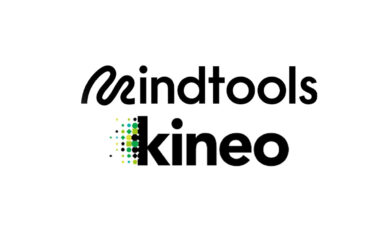“That was an amazing presentation,” I thought, shaking my head in disbelief.
My friend Amy had just finished her talk for her final year thesis, which was supposed to count toward our final grade. The audience was transfixed, focused on her every word. Her visuals were stunning, she spoke confidently, and she didn’t even need her notes. To cap it all, she handled the Q&A session with calm assurance.
My awe quickly disintegrated into anxiety as I heard those dreaded words, “Who’s up next? Ah, Lucy. It’s you.”
I should have felt confident. It was my moment in the sun, right? I’d done my research, put in the prep work, and I’d spent the whole of the previous evening rehearsing in front of a group of friends.
But I didn’t feel confident. Instead, I felt my cheeks turn red and I bumped into a table on my way up. All I could think about was the audience’s eyes burning into me. The notes I’d so carefully prepared now seemed a bit basic, and nowhere near as intelligent as I thought they had the day before.
I did a quick calculation of my distance from the door. Perhaps I could just make a run for it? Maybe I could feign sickness?
“No, no,” I told myself, “Stop being silly and get on with it!”
So, I took a deep breath and pulled myself together and, well, I got on with it!
In the end, it wasn’t as bad as I’d expected. I was proud that I had resisted the urge to flee. But I still breathed a huge sigh of relief when it was all over.
The truth is, even the thought of public speaking fills me with fear. It has done since well before my postgraduate presentation, and that fear still lingers today.
At least I can console myself with the knowledge that I’m not the only one to get presentation nerves. As Jerry Seinfeld once joked (in all seriousness), “Surveys show that the number one fear of Americans is public speaking. Number two is death. That means that at a funeral, the average American would rather be in the casket than doing the eulogy.”
Check out our brand new video with Mind Tools’ Content Editor/Writer, Jonathan Hancock, who shares his handy hints for putting on a great presentation – in spite of any nerves:
We were interested in finding out how you manage presentation nerves, and we put the shoutout on our social media channels: “How do you deal with presentation nerves?”
Do Your Presentation Prep Work
Preparation featured in a lot of the responses that we got. As Facebook friend Greg Schmierer succinctly suggests, “Practice, practice, practice.”
But what should your practice and prep work entail? Facebook follower Chetan Agarwal recommends that it go beyond just slide design, saying, “A lot of people confuse preparation with creating slides, but it is more about your script, intonations, anticipating probable questions and drafting your answers, your important notes, flash cards, if necessary, etc. Slides or deck is just the first primary preparation.”
Instagram follower dmbarch offers similar advice. He says, “I try to prepare the best I can. i.e: write down the things I am planning to say. That way, when nerves hit, I know where to go and retake control.”
Another of our Facebook friends, Deepa Hemant Krishnan, also highlights the important of seeking feedback during preparation time. She advises, “Do a mock presentation to somebody who can be a good representation of the expected audience and seek feedback.”
Just Breathe!
One tip that came up time and time again, was using stress management and deep breathing to keep presentation nerves at bay.
LinkedIn follower Renee Chamberlin suggests, “Take three long, slow, deep breaths and at the same time, wiggle your toes. This helps calm you and brings you back from your anxious mind into your body.” Greg Schmierer follows a similar routine. He says, “Just before the presentation, I close my eyes, take three deep breaths, and visualize [the] success of my presentation.”
Engage Your Audience
Hooking in the audience with a joke, anecdote or story early on can also help you to lighten the mood, and is a great way of getting your audience engaged.
As Twitter follower Pauline Grant recommends, “Find an appropriate hook to connect with and engage your audience from the outset.” Fellow Tweeter Jo Gallagher adds, “Breathe and be yourself! It’s a conversation relaying information and an opportunity to engage the crowd [and], in doing so, learn something new.”
Thank you to everyone who responded to our question, we appreciate the time and effort that you took to join in our discussion.
If you have any further tips or tricks on dealing with presentation nerves, please share them in the box, below!





Comments
Walter Graves says
3 years agoClear in ones talk / speech makes for good Communitions and under standing
Eugene Caccam says
3 years agoVery useful and down to earth. Thanks for the witty presentation.
Zala Bricelj says
3 years agoHi Eugene,
happy to hear you've enjoyed the presentation.
Zala - MT Coach